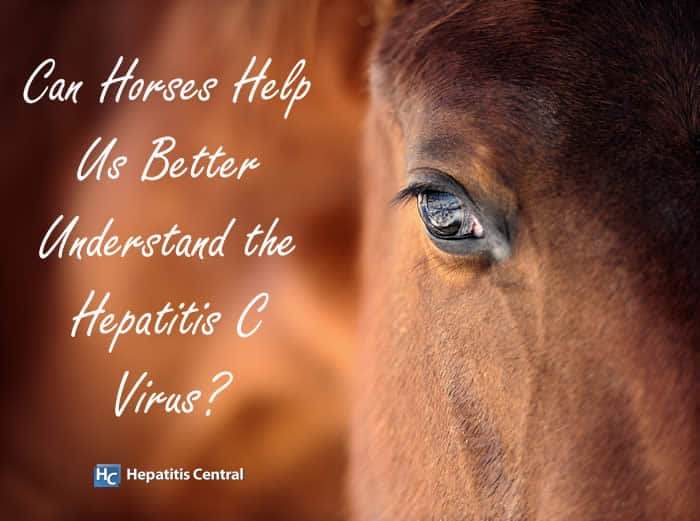Can Horses Help Us Better Understand the Hepatitis C Virus?


As many as 3.9 million Americans have chronic hepatitis C, with many of these individuals unaware that they even have this virus which inflames and ultimately damages the liver. (1) Early diagnosis is key to a successful treatment outcome.
But to have a vaccine capable of preventing the virus would be even better. That’s where horses may be able to help.
The Issue with Understanding Hepatitis C
On March 2, 2022, a press release was issued by Ruhr-Universität Bochum (RUB), a public research university in Bochum, Germany. In this release, Dr. Daniel Todt, a member of the RUB Virology Department, shares that one of the main issues with hepatitis C “is that the virus is constantly changing and thus escapes the immune system.” (2) This makes it a challenge when it comes to figuring out what would work for a hepatitis C vaccine.
It’s not uncommon for studies to be conducted on animals when trying to craft a safe and effective vaccination. Though, the outcomes of those studies don’t always translate to humans. We’re different beings, after all, so our bodies don’t always function like the animal used.
A group of researchers decided to work around this by conducting their research on horses since these animals have the capability of being infected with the hepatitis C virus.
Additionally, the virus that strikes these types of animals and the one that strikes humans “are genetically close relatives,” explains André Gömer, a Ph.D. student at the University of Veterinary Medicine Hanover’s Research Training Group VIPER and lead researcher.
Although, in horses, the infection is rarely chronic. Gömer set out to figure out why.
The Equine Hepatitis C Virus Study

In this study, which was published in Virus Evolution on February 2, 2022, Gömer and several other researchers compared E1E2 glycoprotein diversity in both horses and humans. (3) Some of the human study subjects had acute hepatitis C infection while others had a chronic infection. Individuals in the latter group also either had received no treatment at all or had engaged in interferon treatment.
Based on their analysis, Gömer and his team noted that the number and frequency of hepatitis virus variants were lower in the horses that were not chronically infected. This suggests that variability when the virus is in the acute stage may play a role in its progression.
Their diversity was lower as well, which also appears to have an impact on whether the virus can escape the immune system.
What Does This Research Mean?
“These findings help us to better understand the tactics of the hepatitis C virus,” says Dr. Todt in the press release, “and to find out which areas of the virus are the most relevant.” (2)
In other words, the information collected in studies such as these can go a long way in the potential creation of a hepatitis C vaccine—and their results are more likely to be transferable to humans since the virus in horses is similar enough to make the connection.
(1) National Institute of Diabetes and Digestive and Kidney Diseases. (2020, March). Hepatitis C. Retrieved March 13, 2022, from https://www.niddk.nih.gov/health-information/liver-disease/viral-hepatitis/hepatitis-c
(2) Ruhr-Universität Bochum. (2022, March 2). Equine Hepatitis Viruses Help Understand Hepatitis C. Retrieved March 13, 2022, from https://news.rub.de/english/press-releases/2022-03-02-virology-equine-hepatitis-viruses-help-understand-hepatitis-c
(3) Gömer, A., Brown, R., Pfaender, S., et al. (2022, February 02). Intra-Hose Analysis of Hepaciviral Glycoprotein Evolution Reveals Signatures Associated with Viral Persistence and Clearance. Virus Evolution. doi: 10.1093/ve/veac007







